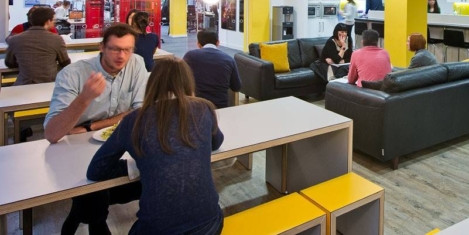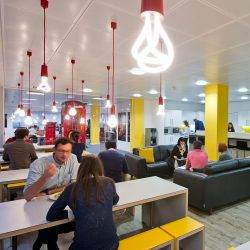November 13, 2018
Activity in leisure time does not compensate for sedentary workplace behaviour
 Employees are wrongly assuming that keeping active outside of the workplace and during leisure time will protect them from the danger of sitting for long periods when working in an office, a new study has found. The report defines an ‘active coach potato’ as a person who is physically active in their leisure time, but who also spends long periods of time sat down. Such sedentary behaviour increases the risk of chronic health issues such as diabetes, heart disease and strokes. The study is published in the scientific journal Occupational Medicine. The researchers asked 222 desk based workers and 121 managers to rate the healthiness of various combinations of sitting and physical activities during work and leisure time. They found that if a scenario included being physically active during leisure time, the employee didn’t appreciate the detrimental effect of workplace sitting alongside it.
Employees are wrongly assuming that keeping active outside of the workplace and during leisure time will protect them from the danger of sitting for long periods when working in an office, a new study has found. The report defines an ‘active coach potato’ as a person who is physically active in their leisure time, but who also spends long periods of time sat down. Such sedentary behaviour increases the risk of chronic health issues such as diabetes, heart disease and strokes. The study is published in the scientific journal Occupational Medicine. The researchers asked 222 desk based workers and 121 managers to rate the healthiness of various combinations of sitting and physical activities during work and leisure time. They found that if a scenario included being physically active during leisure time, the employee didn’t appreciate the detrimental effect of workplace sitting alongside it.















 Over half of home workers say they appreciate the benefits that home working offers but nearly a quarter complain of loneliness too, a new survey from BHSF claims. When asked how working from home makes them feel, the top three responses were: free (50 percent), in control (47 percent) and calm (46 percent). However, a significant number of those surveyed chose more negative words to describe their feelings. Just over a quarter (26 percent) said that working from home made them feel remote, 24 percent felt isolated and 21 percent lonely.
Over half of home workers say they appreciate the benefits that home working offers but nearly a quarter complain of loneliness too, a new survey from BHSF claims. When asked how working from home makes them feel, the top three responses were: free (50 percent), in control (47 percent) and calm (46 percent). However, a significant number of those surveyed chose more negative words to describe their feelings. Just over a quarter (26 percent) said that working from home made them feel remote, 24 percent felt isolated and 21 percent lonely. 

















November 7, 2018
Will technology prove a threat or a godsend in the new workplace?
by Matt Weston • Comment, Technology, Workplace
(more…)